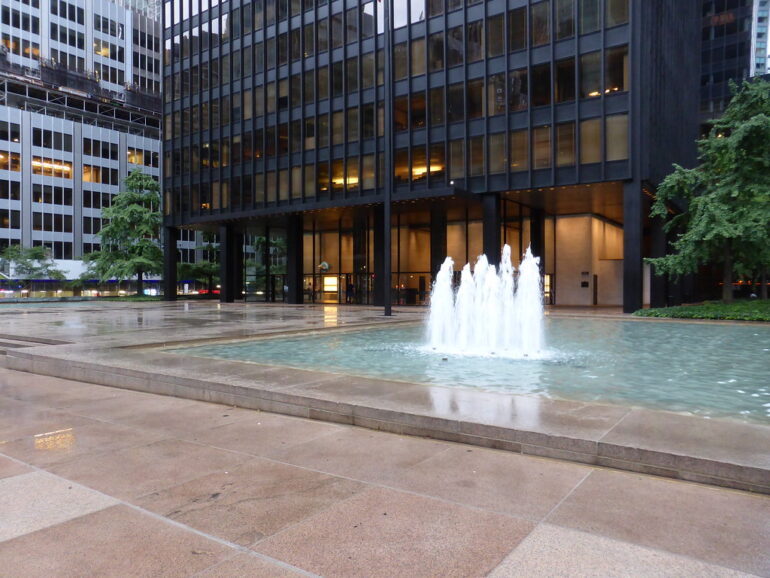Every time I talk to someone about my business and career, it always comes up that “they’ve thought about getting into real estate” or know someone who has. With so many people thinking about getting into real estate, and getting into real estate – why aren’t there more successful Realtors in the world? Well, there’s only so much business to go around, so there can only be so many Real Estate Agents in the world. I feel, however, that the inherent nature of the business, and how different it is from traditional careers, makes it difficult for the average person to successfully make the transition into the Real Estate Business. As a Broker, I see many new agents make their way into my office – for an interview, and sometimes to begin their careers. New Real Estate Agents bring a lot of great qualities to the table – lots of energy and ambition – but they also make a lot of common mistakes. Here are the 7 top mistakes rookie Real Estate Agents Make.
1) No Business Plan or Business Strategy
So many new agents put all their emphasis on which Real Estate Brokerage they will join when their shiny new license comes in the mail. Why? Because most new Real Estate Agents have never been in business for themselves – they’ve only worked as employees. They, mistakenly, believe that getting into the Real Estate business is “getting a new job.” What they’re missing is that they’re about to go into business for themselves. If you’ve ever opened the doors to ANY business, you know that one of the key ingredients is your business plan. Your business plan helps you define where you’re going, how you’re getting there, and what it’s going to take for you to make your real estate business a success. Here are the essentials of any good business plan.
- Goals – What do you want? Make them clear, concise, measurable, and achievable.
- B) Services You Provide – you don’t want to be the “jack of all trades & master of none” – choose residential or commercial, buyers/sellers/renters, and what area(s) you want to specialize in. New residential real estate agents tend to have the most success with buyers/renters and then move on to listing homes after they’ve completed a few transactions.
- C) Market – who are you marketing yourself to?
- D) Budget – consider yourself “new real estate agent, inc.” and write down EVERY expense that you have – gas, groceries, cell phone, etc… Then write down the new expenses you’re taking on – board dues, increased gas, increased cell usage, marketing (very important), etc…
- E) Funding – how are you going to pay for your budget w/ no income for the first (at least) 60 days? With the goals you’ve set for yourself, when will you break even?
- F) Marketing Plan – how are you going to get the word out about your services? The MOST effective way to market yourself is to your own sphere of influence (people you know). Make sure you do so effectively and systematically.
2) Not Using the Best Possible Closing Team
They say the greatest businesspeople surround themselves with people that are smarter than themselves. It takes a pretty big team to close a transaction – Buyer’s Agent, Listing Agent, Lender, Insurance Agent, Title Officer, Inspector, Appraiser, and sometimes more! As a Real Estate Agent, you are in the position to refer your client to whoever you choose, and you should make sure that anyone you refer in will be an asset to the transaction, not someone who will bring you more headache. And the closing team you refer in, or “put your name to,” are there to make you shine! When they perform well, you get to take part of the credit because you referred them into the transaction.
The deadliest duo out there is the New Real Estate Agent & New Mortgage Broker. They get together and decide that, through their combined marketing efforts, they can take over the world! They’re both focusing on the right part of their business – marketing – but they’re doing each other no favors by choosing to give each other business. If you refer in a bad insurance agent, it might cause a minor hiccup in the transaction – you make a simple phone call and a new agent can bind the property in less than an hour. However, because it typically takes at least two weeks to close a loan, if you use an inexperienced lender, the result can be disastrous! You may find yourself in a position of “begging for a contract extension,” or worse, being denied a contract extension.
A good closing team will typically know more than their role in the transaction. Due to this, you can turn to them with questions, and they will step in (quietly) when they see a potential mistake – because they want to help you, and in return receive more of your business. Using good, experienced players for your closing team will help you infinitely in conducting business worthy of MORE business…and best of all, it’s free!
3) Not Arming Themselves with the Necessary Tools
Getting started as a Real Estate Agent is expensive. In Texas, the license alone is an investment that will cost between $700 and $900 (not taking into account the amount of time you’ll invest.) However, you’ll run into even more expenses when you go to arm yourself with the necessary tools of the trade. And don’t fool yourself – they are necessary – because your competitors are definitely using every tool to help THEM.A) MLS Access is probably the most expensive necessity you’re going to run into. Joining your local (and state & national, by default) Board of Realtors will allow you to pay for MLS access, and in Austin, Texas, will run around $1000. However, don’t skimp in this area. Getting MLS access is one of the most important things you can do. It’s what differentiates us from your average salesman – we don’t sell homes, we present any of the homes that we have available. With MLS Access, you will have 99% of the homes for sale in your area available to present to your clients.
- B) Mobile Phone w/ a Beefy Plan – These days, everyone has a cell phone. But not everyone has a plan that will facilitate the level of use that Real Estate Agents need. Plan on getting at least 2000 minutes per month. You want, and need, to be available to your clients 24/7 – not just nights and weekends.




